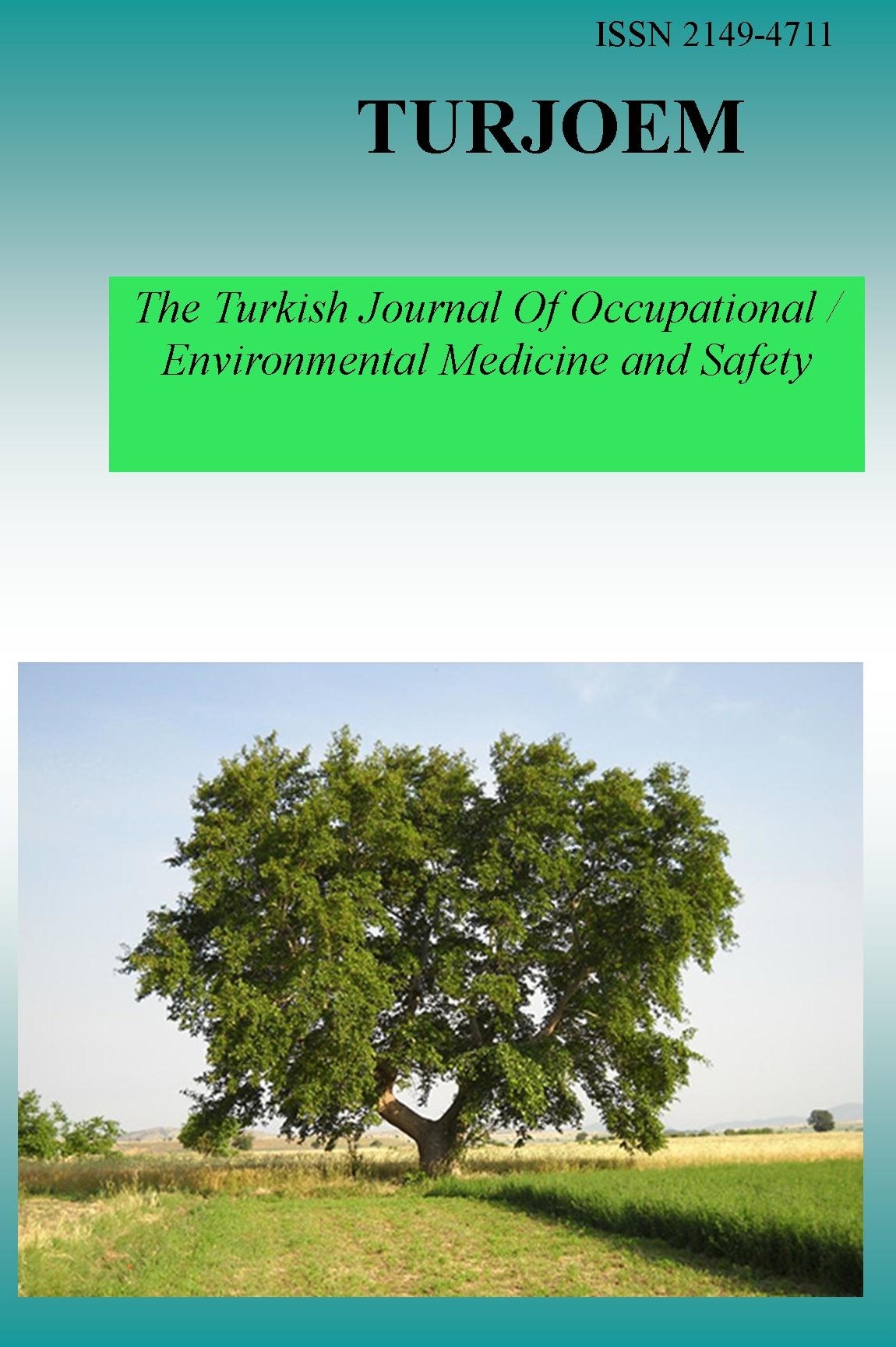DYNAMIC DISULFIDE/THIOL HOMEOSTASIS IN FIREFIGHTER’S LUNG DISEASE DETECTION
DYNAMIC DISULFIDE/THIOL HOMEOSTASIS IN FIREFIGHTER’S LUNG DISEASE DETECTION
___
- Department of Family Medicine, Occupational Diseases Hospital, Ankara, Turkey
- Department of Biochemistry, Yıldırım Beyazıt University, Ankara, Turkey
- Department of Internal Medicine, Hacettepe University, Ankara, Turkey
- Department of Pharmacology, Occupational Diseases Hospital, Ankara, Turkey
- Department of Biochemistry, Atatürk Educational and Research Hospital, Ankara, Turkey
- The Council of Forensic Medicine of Ankara, Turkey
- Department of Toxicology, Occupational Diseases Hospital, Ankara, Turkey
- ISSN: 2149-4711
- Başlangıç: 2015
- Yayıncı: Engin TUTKUN
BIOTRANSFORMATION, BIOCUMULATION AND TOXICITY OF SOME PLASTIFIANS (BISPHENOLS; PHTHALATES)
Selçuk Salim ERDOĞAN, Dilek KAYA AKYÜZLÜ, Burak ARI
SOURCES AND DISTRIBUTION OF ARSENIC IN GROUNDWATER RESOURCES IN TURKEY
MASS SPECTROMETRY TECHNIQUES IN CLINICAL LABORATORY
CYTOGENETIC EFFECTS OF SILICON DIOXIDE ON HUMAN PERIPHERAL BLOOD LYMPHOCYTES IN VITRO
LETHAL MUSHROOM TOXINS: ANALYSIS OF THE AMANITINS AND APPLICATION OF LATERAL FLOW IMMUNOASSAY
THE IMPORTANCE OF ACCREDITATION IN FORENSIC TOXICOLOGY
Dilek SALKIM IŞLEK, Salih CENGIZ, Fatma Ç AVUŞ, Gülten RAYIMOĞLU, Emel Hülya YÜKSELOĞLU
FUTURE TRENDS IN FORENSIC SCIENCES
